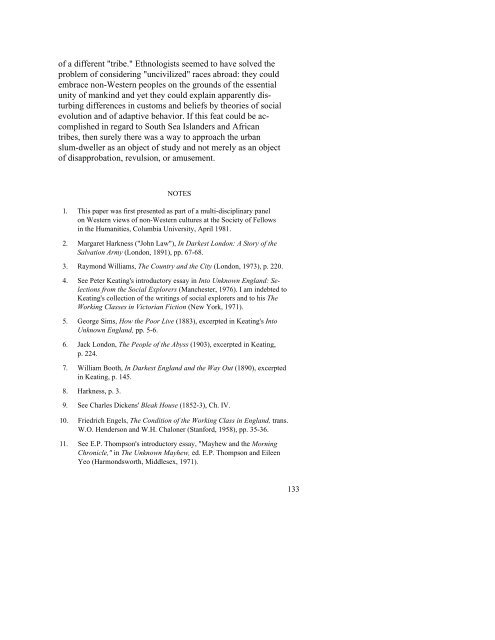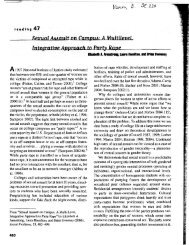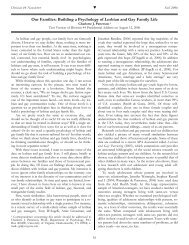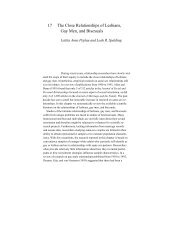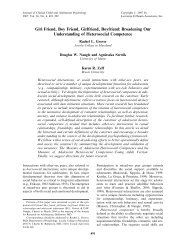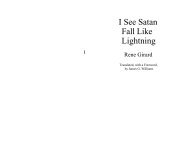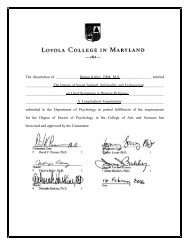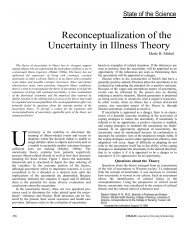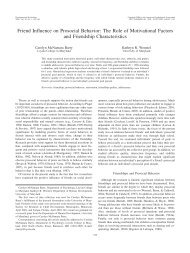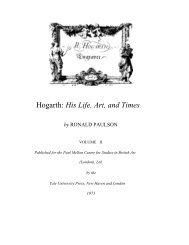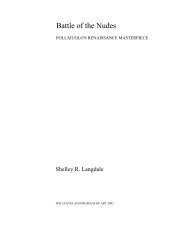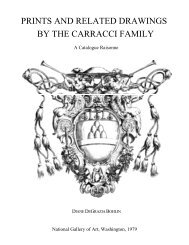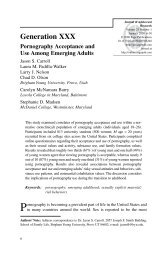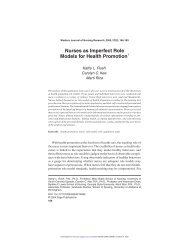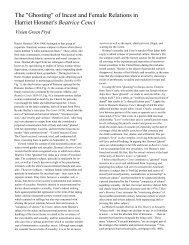The Social Explorer as Anthropologist: Victorian Travellers among ...
The Social Explorer as Anthropologist: Victorian Travellers among ...
The Social Explorer as Anthropologist: Victorian Travellers among ...
You also want an ePaper? Increase the reach of your titles
YUMPU automatically turns print PDFs into web optimized ePapers that Google loves.
of a different "tribe." Ethnologists seemed to have solved the<br />
problem of considering "uncivilized" races abroad: they could<br />
embrace non-Western peoples on the grounds of the essential<br />
unity of mankind and yet they could explain apparently dis-<br />
turbing differences in customs and beliefs by theories of social<br />
evolution and of adaptive behavior. If this feat could be ac-<br />
complished in regard to South Sea Islanders and African<br />
tribes, then surely there w<strong>as</strong> a way to approach the urban<br />
slum-dweller <strong>as</strong> an object of study and not merely <strong>as</strong> an object<br />
of disapprobation, revulsion, or amusement.<br />
NOTES<br />
1. This paper w<strong>as</strong> first presented <strong>as</strong> part of a multi-disciplinary panel<br />
on Western views of non-Western cultures at the Society of Fellows<br />
in the Humanities, Columbia University, April 1981.<br />
2. Margaret Harkness ("John Law"), In Darkest London: A Story of the<br />
Salvation Army (London, 1891), pp. 67-68.<br />
3. Raymond Williams, <strong>The</strong> Country and the City (London, 1973), p. 220.<br />
4. See Peter Keating's introductory essay in Into Unknown England: Se-<br />
lections from the <strong>Social</strong> <strong>Explorer</strong>s (Manchester, 1976). I am indebted to<br />
Keating's collection of the writings of social explorers and to his <strong>The</strong><br />
Working Cl<strong>as</strong>ses in <strong>Victorian</strong> Fiction (New York, 1971).<br />
5. George Sims, How the Poor Live (1883), excerpted in Keating's Into<br />
Unknown England, pp. 5-6.<br />
6. Jack London, <strong>The</strong> People of the Abyss (1903), excerpted in Keating,<br />
p. 224.<br />
7. William Booth, In Darkest England and the Way Out (1890), excerpted<br />
in Keating, p. 145.<br />
8. Harkness, p. 3.<br />
9. See Charles Dickens' Bleak House (1852-3), Ch. IV.<br />
10. Friedrich Engels, <strong>The</strong> Condition of the Working Cl<strong>as</strong>s in England, trans.<br />
W.O. Henderson and W.H. Chaloner (Stanford, 1958), pp. 35-36.<br />
11. See E.P. Thompson's introductory essay, "Mayhew and the Morning<br />
Chronicle," in <strong>The</strong> Unknown Mayhew, ed. E.P. Thompson and Eileen<br />
Yeo (Harmondsworth, Middlesex, 1971).<br />
133


